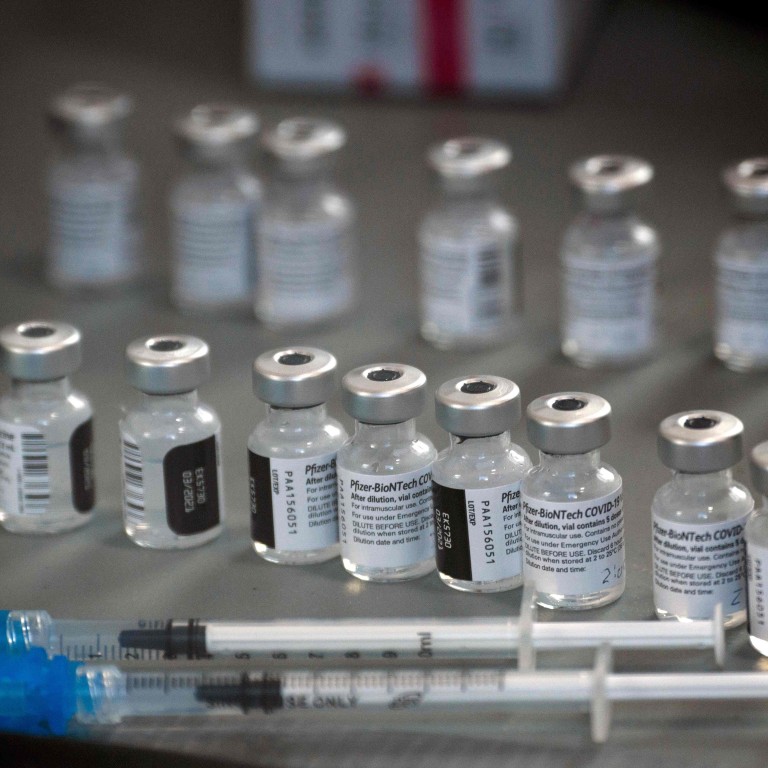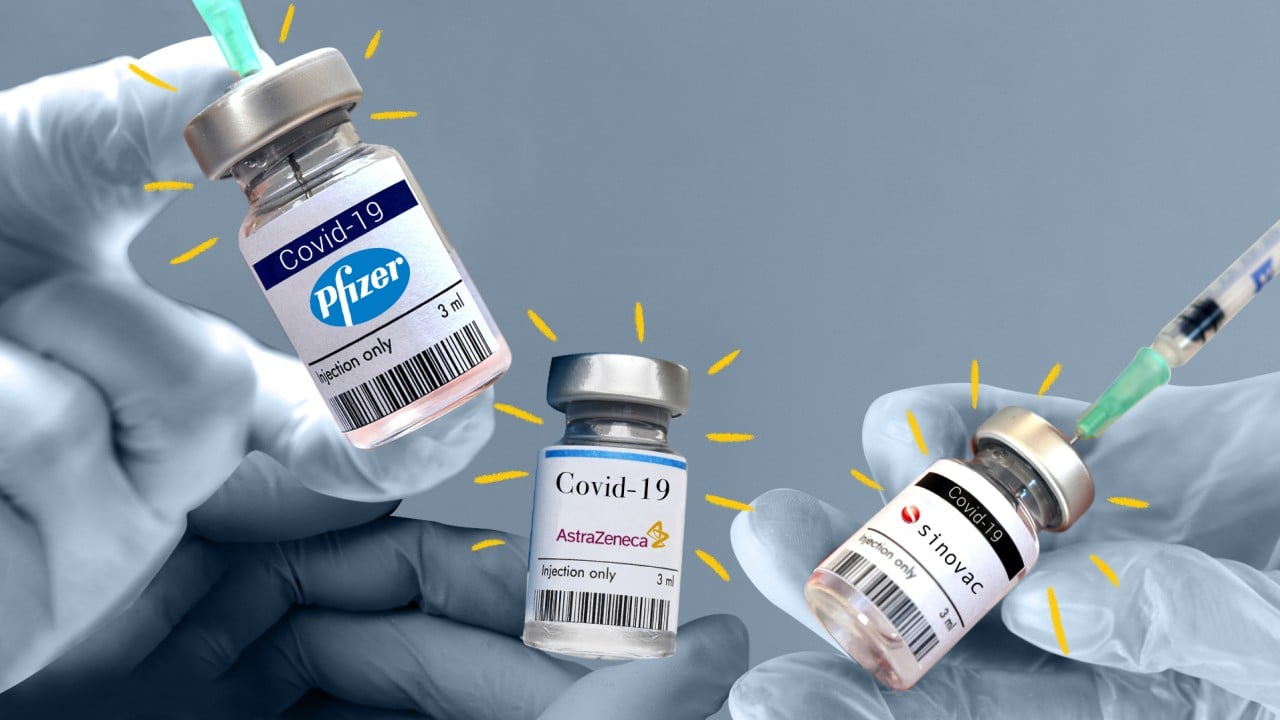
Exclusive | Coronavirus: Hong Kong set to approve Pfizer-BioNTech jab before end of week as deep-freeze storage facility selected
- Health secretary Sophia Chan could approve use of the vaccine this week, according to a source
- Kwai Chung warehouse, understood to be run by health care logistics firm, picked by vaccine supplier Fosun Pharma for storage
Two official scientific committees have also advised the government to give vaccination priority to four high-risk groups: health care workers, people aged 60 and above, residents and staff of care homes for the elderly and the disabled, and chronically ill patients aged between 16 and 59.
Hong Kong confirms 77 new Covid-19 cases, half from outbreak-hit district
A government source said the vaccine could be approved by the minister this week.
There had been concerns about storage of the vaccine, which needs to be kept at minus 70 degrees Celsius and thawed before use.
The warehouse has about 13 to 15 refrigerators capable of storing items at minus 70 degrees. The site is also equipped with a facility at 2 to 8 degrees where thawing and repackaging can be done.
“Repackaging of those vaccines must be done at this temperature range rather than at room temperature,” the source said, adding the company also held a specific licence from the health authorities for handling the vaccines.
While a carton of vaccines holds 195 vials, each containing five doses, space for repackaging will be needed for different locations where the number of people receiving it will vary.

09:50
SCMP Explains: What's the difference between the major Covid-19 vaccines?
“The site near the airport could only be used for storage, but the thawing of the vaccine will need to be done by vaccination service providers,” the source added.
The airport remains a key step in the operation. Planes carrying the vaccine will get preference to park closest to freight terminals, allowing for faster unloading of consignments of the jab, which will also be prioritised ahead of other cargo.
Hong Kong Covid-19 panel backs Pfizer vaccine, seeks more Norway deaths details
The airport’s main cargo partner, Cathay Pacific Airways, would be able to receive around 8.6 million vaccines a day to store. It is hoped that being the world’s busiest air cargo hub, the airport will play a major role in the transshipment of vials.
On Monday, Pfizer-BioNTech’s vaccine was the first to be recommended by a government expert advisory panel for use in Hong Kong.
Hong Kong has reached purchase agreements for three vaccines, procuring 7.5 million doses of each.
Aside from the Pfizer-BioNTech jabs, the city has also procured Beijing-based Sinovac’s vaccine and one jointly developed by British-Swedish pharmaceutical firm AstraZeneca and Oxford University.
The Sinovac vaccine, originally expected this month, is likely to arrive in February. AstraZeneca’s offering is due by the middle of the year.
Meanwhile, two government scientific committees – on vaccine-preventable diseases and emerging and zoonotic diseases, respectively – issued a set of interim recommendations on the use of Covid-19 vaccines on Thursday, namely the Pfizer-BioNTech and AstraZeneca offerings.
Their report did not touch on recommendation for Sinovac’s vaccine, that would “be updated should more clinical information become available”.
In addition to laying out the high-risk groups who should be prioritised for vaccination – the experts noted those aged 60 and up represented around 95 per cent of local Covid-19 fatalities – the committees advised against vaccination for pregnant and breastfeeding women, and warned that population-level protection would not be achieved in the short term.
“Vaccination is only one of the tools in the overall public health response to Covid-19. There is a need to continue public health strategies on non-pharmaceutical interventions, including social distancing, good hand hygiene and wearing a mask in public, to reduce the risk of transmission,” the report said.


